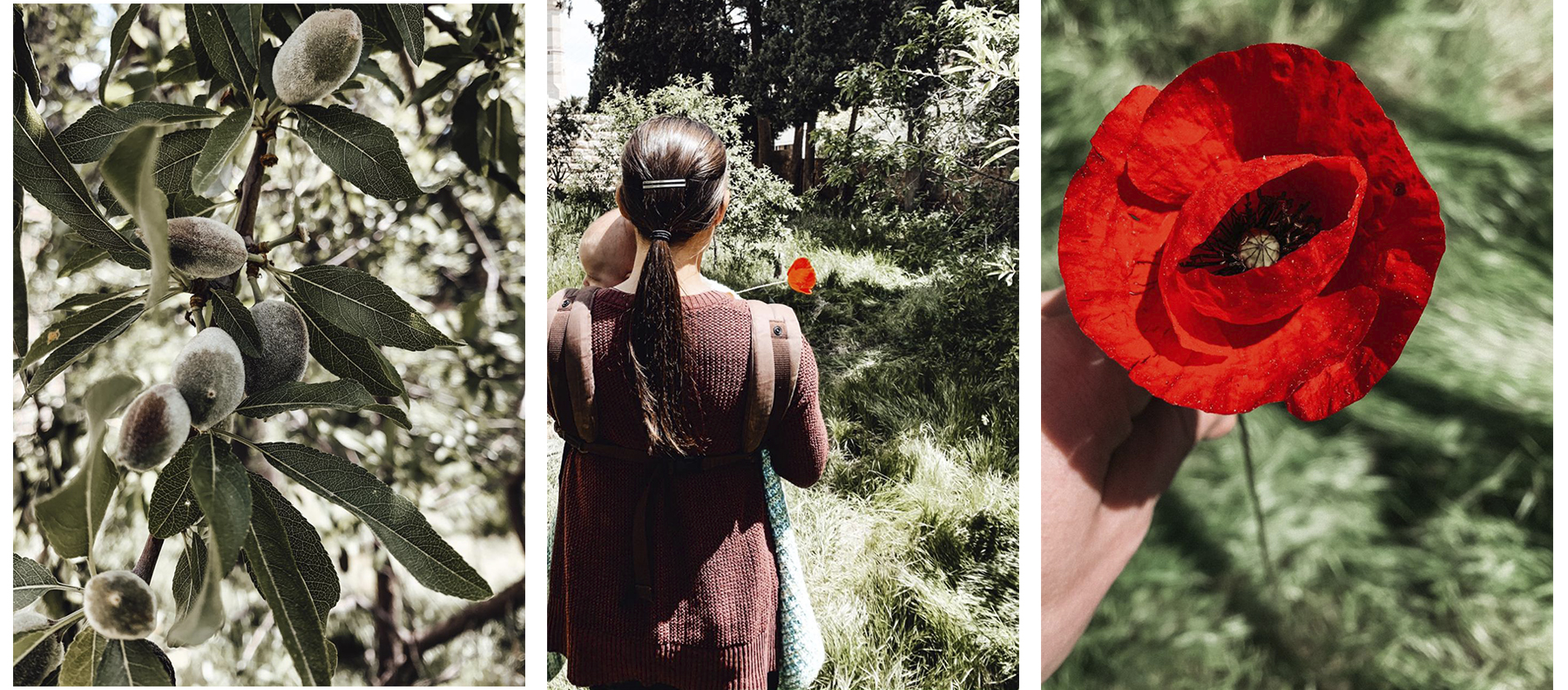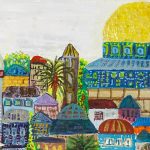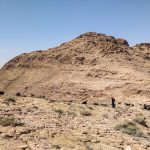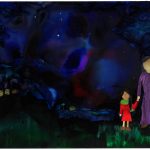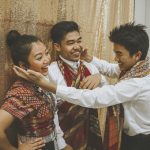STORY BY HEATHER M. SURLS
On Day 23 of quarantine I stood in front of a black iron gate, coaxing open its sliding lock. This gate was not mine, nor was the yard or the building inside. They didn’t belong to a friend either, or even to a neighbor. Essentially, I was attempting to trespass on a stranger’s property in broad daylight.
Then that stranger called to me from the street.
A dark-skinned man with close-cropped, curly hair approached me, dragging his right foot. He wore a blue smock, which hung loosely on his small frame. I stepped away from the gate and walked toward him, acting like I hadn’t been picking his lock.
“Do you need something?” I asked in Arabic. (I never talk to men I don’t know in the street. It seems quarantine has made me a bit reckless.)
“I live here,” he said.
Explanations and justifications tumbled from my mouth. “I was here earlier with my sons” (true—we’d even taken wild poppies from his yard), “I’ve seen this garden for years” (also true—I’ve peered over the block wall for nearly five), “I just want to sit and enjoy the sun” (very true—quarantine makes you crave the open sky).
The man looked at me with eyes cloudy from premature disease. “Welcome,” he said, opening the gate. “Please come in.”
Once inside he asked if I wanted to pick almonds. If I was Arab, I would have jumped at the opportunity. This yard containing about a dozen small almond trees would be a jackpot for Jordanians, who enjoy the immature green nuts as a spring snack. Kids and adults alike swarm urban almond trees each spring, climbing ladders, walls, even rooftops to claw down the velvety green nuts. They eat them like candy—raw, crunchy, and tart—sometimes dipping them in salt for an added twist of flavor.
No, I assured my host, I really only wanted to sit. He returned to his apartment around the back of the one-story cement block building, leaving me to a trampled path through the tall grass. Among the almond trees I found a low, round stone structure, previously a fountain, speckled with moss and lichen. I sat on its edge, delighted at my good fortune. Somehow, in the midst of a worldwide pandemic, I found myself in a place my heart had long dreamed of.
“The Secret Garden,” as I referred to this place in conversations with my husband and boys, sits smack in the middle of Amman, on the corner of a street named after a Palestinian city. Jordanians would call the single-family dwelling on the property a villa—an angular, flat-roofed building with a grand entryway and windows filled in with block and plaster, like something blinded.
For five years I had eyed the yard surrounding the villa—luxuriously big for this part of the city. While walking home with my older son from school, I had craned my neck to peek over the wall topped with barbed wire, catching glimpses of color: drifts of white almond blossoms, clumps of miniature yellow daffodils, a patch of red poppies so bright they looked electrified. I wondered why no one was living in such a prime location.
Now inside, I sat under metal poles and wooden slats that once supported a grape arbor, surrounded by Aleppo pines overloaded with cones. Dry palm branches rattled high above me, and two feral cats roamed the yard, unfazed by my presence. On the other side of the wall, the street was silent (our quarantine includes a driving restriction), save the talk of pedestrians, about half of them wearing surgical masks. Birdsong has replaced traffic as background noise here, so much so that sometimes I feel like we live in a jungle. My son and I spent part of a homeschool morning identifying local birds in our field guide: rock pigeons, laughing doves, alpine swifts, blackcaps, and Palestine sunbirds.
I stood up to go. I needed to get some exercise before the weekend’s comprehensive curfew, two days when we could not leave our home for any reason. But when I turned, I saw my host coming down the path, carrying a plastic chair.
“May God give you strength,” I said. “I have troubled you.”
He set the chair in the grass. I noticed he’d cleaned up since we met. He now wore a long-sleeved sweater, scholarly spectacles, and striped fingerless gloves on his hands. “Here is water,” he said, offering me a one-and-a-half-liter bottle, “and these are for you.” He held out a grocery bag half-full of furry green almonds.
“May God bless your hands,” I said, accepting the gift with a smile.
“Do you want coffee?” he asked.
“No, no,” I said, declining but inwardly swooning over his quintessential Arab hospitality. “Thank you so much.”
We stood awkwardly for a few seconds, unsure of whether it was appropriate to chat. Then I threw caution to the wind and began asking questions. (Besides the quarantine card, I always have the foreigner card and the writer/journalist card up my sleeve). He lives here and sells “energy machines,” referring to heaters and air conditioners, which he keeps stored in the old building. (I could tell he doesn’t own the villa and wondered if he’s squatting or has an arrangement with the owner. I didn’t ask this question.)
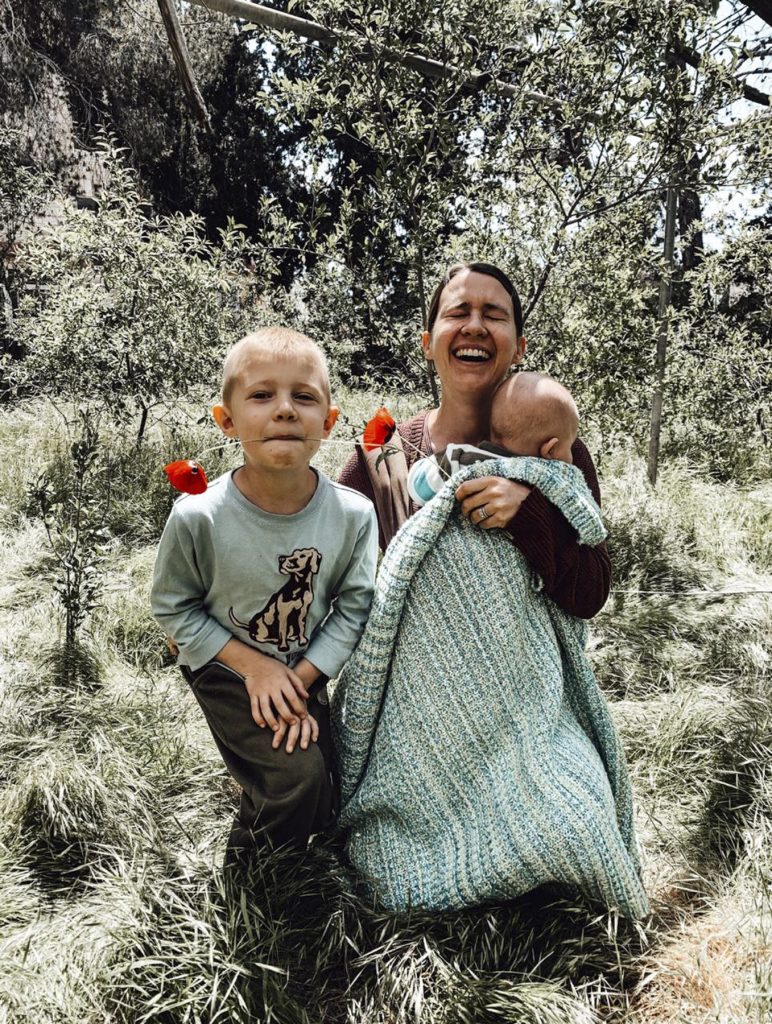
After an obligatory sit in the chair, during which the man respectfully withdrew to his apartment, I finally walked to the gate to leave. But first I turned to the back porch, where a couple of shirts hung sloppily on a clothesline and a pink geranium in an olive oil tin graced the wall. I waved to my host, who stood and came to open the gate.
“My name is Um David,” I said, offering my older son’s name to show I could be respected as a mother. “And you are Abu–?”
“I’m not a father,” he said with a smile. “I’m just Saeed.” Saeed. Happy.
After my walk and before climbing the stairs to my apartment, I hung the bag of almonds on my Jordanian neighbor’s door handle. She and her kids—who love all things sour, even green clementines—would appreciate them while stuck inside for 48 hours. My memory of the secret garden was all I needed.
In addition to serving as Anthrow Circus's assistant editor and proofreader, Heather Surls regularly contributes stories to the site, drawing inspiration from her relationships and experiences in Amman, Jordan. Her reporting and creative work have also appeared in places like Religion News Service, Christianity Today, Hidden Compass,Catamaran, Brevity, River Teeth, and Nowhere. Her first book, a memoir-in-essays about a decade in the Middle East, releases from Lucid Books in Summer 2025.

